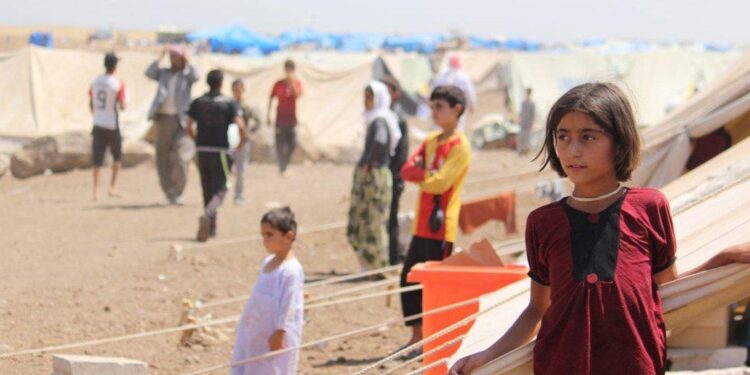Members of the UK House of Lords have voiced sharp criticism over the government’s failure to prosecute British nationals allegedly involved in the Yazidi genocide, according to reports from Genocide Watch. Despite mounting evidence and international calls for justice, critics argue that Britain has yet to take decisive legal action against individuals accused of committing atrocities against the Yazidi community in Iraq. This growing controversy highlights concerns about accountability and the effectiveness of current measures to address war crimes linked to British citizens abroad.
UK Lords Criticize Government for Neglecting British Suspects in Yazidi Genocide Investigations
Several members of the House of Lords have voiced strong concerns over the British government’s apparent failure to pursue investigations and legal action against UK-based individuals suspected of involvement in the Yazidi genocide. Despite mounting evidence and international pressure, critics argue that a lack of political will and resource allocation has left these suspects effectively immune from prosecution, undermining efforts to deliver justice to the Yazidi community. The omission not only hampers accountability but raises serious questions about the UK’s commitment to upholding human rights and combating genocide globally.
Key points raised by the Lords include:
- Insufficient coordination between intelligence agencies and law enforcement on British suspects linked to ISIS crimes.
- Delays and bureaucratic hurdles stalling case progress despite substantial victim testimonies.
- The need for strategic legislation updates to better criminalize and prosecute genocide-related acts committed abroad by UK nationals.
| Metric | Current Status | Recommended Action |
|---|---|---|
| Number of British suspects identified | 15+ | Increase transparency & updates |
| Cases actively investigated | 3 | Expand investigative teams |
| Prosecutions initiated | 0 | Implement targeted legal reforms |
Detailed Analysis of Legal and Ethical Implications Surrounding the Failure to Prosecute
The failure to prosecute British nationals accused of participating in the Yazidi genocide raises profound legal challenges and ethical concerns. Legally, this gap undermines the principle of universal jurisdiction, which asserts that certain crimes, such as genocide, should be prosecuted regardless of where they occur. The reluctance or inability to bring suspects to trial not only erodes international justice mechanisms but also risks creating a dangerous precedent of impunity. Moreover, the absence of trials impedes evidence gathering and witness testimonies while memories fade-jeopardizing future prosecutions. In the UK context, limitations in existing legislation, resource allocation, and political will are pivotal hurdles that must be addressed to align domestic accountability with international legal obligations.
- Strengthening extraterritorial jurisdiction enabling UK courts to try genocide suspects abroad
- Enhancing investigative resources dedicated to international crimes
- Establishing clearer procedural guidelines to prioritize genocide cases
- Increasing collaboration with international tribunals and survivor networks
Calls for Comprehensive Policy Reform to Address Accountability Gaps in Genocide Justice
UK lawmakers are intensifying demands for a transformative overhaul of the legal frameworks governing genocide accountability. The recent scrutiny over missed opportunities to prosecute British nationals implicated in crimes against the Yazidi community has laid bare critical deficiencies in both domestic and international justice mechanisms. Experts stress that without a comprehensive revision of existing policies, impunity will continue to undermine the global fight against genocide.
Advocates and human rights organizations highlight several urgent areas that require attention:
| Policy Area | Current Gap | Proposed Reform |
|---|---|---|
| Jurisdiction | Limited reach for crimes abroad | Expand to cover all UK nationals |
| Investigations | Insufficient dedicated resources | Specialized task forces for genocide cases |
| Legal Procedures | Inconsistent handling of genocide charges | Standardized, transparent protocols |
| International Cooperation | Fragmented engagement with tribunals | Formal partnerships and data sharing |
Wrapping Up
As calls for accountability intensify, the UK Lords’ failure to prosecute British nationals allegedly involved in the Yazidi genocide remains a pressing concern for human rights advocates and the international community alike. Genocide Watch and other organizations continue to urge the UK government to uphold justice and ensure that those responsible face trial, underscoring the broader imperative of combating impunity in cases of mass atrocities. The ongoing debate highlights the challenges of legal jurisdiction and political will in addressing crimes against humanity, leaving many to question the effectiveness of current mechanisms to deliver justice for the Yazidi people.
















